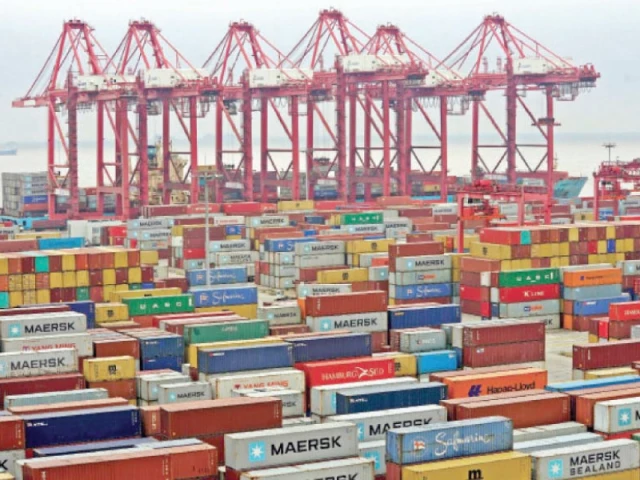When entrepreneurial ambitions meet with reality
Entrepreneur moves business abroad to escape perception, policy challenges

Aqib Mehmood, an entrepreneur connected to the world by a government agency to enhance the nation's exports, has now made Indonesia his base for conducting business, aiming to overcome Pakistan's image problem, which was leading to exploitation by foreign buyers.
Mehmood, a business partner at a small enterprise, Masairr, was a student of business studies nine years ago at the Institute of Business Administration (IBA), Karachi, when he decided to launch a pink salt export business. However, he did not know how to connect to the world and find buyers. The jump-start came when the Trade Development Authority of Pakistan (TDAP) became a bridge and "connected us to the world", said Mehmood. The help from TDAP brought his business to the global map and he has now become a bridge between Pakistani firms and Indonesian buyers.
"Our financial worth was virtually zero but today we are outsourcing agents, commission agents and suppliers of different goods to a number of major international players," said Mehmood.
"But we had to move to Indonesia in 2024 to overcome the problem of Pakistan's image, lack of support from the banking sector and avoid being exploited by foreign buyers," he said. Mehmood agreed that it was a dichotomy that TDAP helped him become a small player in the global value chain but the image problem and the lack of consistency in economic policies pushed him to make Indonesia a destination for promoting exports of Pakistani goods.
"Yes definitely, Pakistan is my home and will always remain my home," he said, while responding to a question when he would again make Pakistan his base for export business. Mehmood's story is not an isolated incident. Pakistan's exports have remained stagnant over the years due to the difficulties the exporters face, which are not limited to just troubles in making timely international payments and uncertain policies of exchange rate, interest rate and taxes.
The country's exports dipped 3.8% during the first quarter of the current fiscal year, despite enhancing exports is one of the top priorities of the prime minister.
TDAP, a government body responsible for facilitating exports, has been assisted by the government of the United Kingdom to link aspiring local businesses with the international markets and to encourage innovation in businesses.
Mehmood said his business started from a hostel room at IBA Karachi and within eight years, with the help of TDAP, the small firm was a bridge in supporting many large firms as sourcing agents and was a business development solution provider.
It is now delivering rock phosphate, Himalayan salt, fruits and vegetables from Pakistan to clients in Indonesia, Malaysia, Singapore, Bangladesh and the United States. The company has been assisted by the country's missions in Indonesia, particularly in Bangladesh where it faced payment issues. Pakistan's phosphate resources offer a promising and untapped opportunity for international buyers in the fertiliser and agricultural industries. With an estimated 26 million metric tons of rock phosphate primarily located in Mansehra, Abbottabad and other areas of Hazara region of Khyber-Pakhtunkhwa, Pakistan holds significant potential for high-grade phosphate extraction and processing.
Pakistani phosphate deposits have gained attention for their accessibility and promising mineral content up to 26-30% of phosphorus pentoxide. Pakistan has the world's largest salt reserves, estimated at up to 5 billion metric tons.
TDAP helped Masairr and provided it with international connections and an understanding of global markets. The company's partners are also now dealing in export of onions and mangoes.
Mehmood said that throughout this journey, TDAP remained a strong pillar of support – from the very first day, when they walked into their Karachi office seeking guidance, to the many times the portal connected them with embassies, high commissions and international buyers. Even in difficult situations, such as a payment dispute in Bangladesh, TDAP and the Pakistan High Commission in Dhaka stepped in and resolved the matter professionally.
Mehmood said that Pakistan has great potential for expanding bilateral trade with Indonesia and reducing the trade deficit. Pakistan exports only $300 million worth of goods to Indonesia but imports nearly $3.5 billion of products.
With an economy five times larger than Pakistan's and exports at least 10 times greater, Indonesia offers immense opportunities for growth. Masairr believes that Pakistani exporters can capture a significant share of this market with the right strategy.
Masairr's efforts have been widely recognised by the business circles in Indonesia such as KADIN and the company's business partners have been invited to high-level meetings to discuss the future of bilateral trade between both countries. Mehmood believes that with a more proactive role by institutions like TDAP, the country can overcome its image problem and enhance exports.





















COMMENTS (1)
Comments are moderated and generally will be posted if they are on-topic and not abusive.
For more information, please see our Comments FAQ